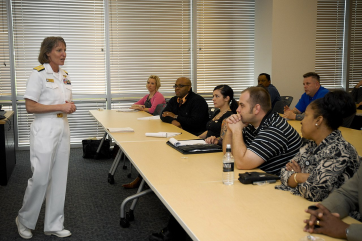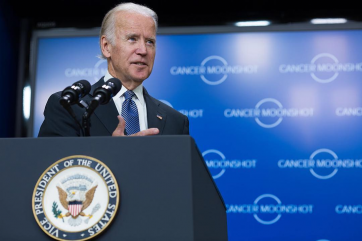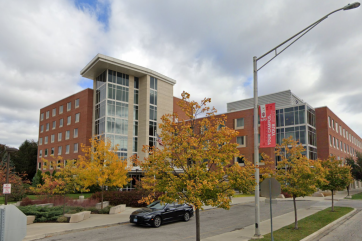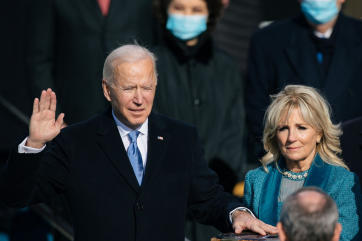Students meet University President Stephen Perez with a barrage of questions concerning the support and understanding of rural students, mirroring a growing effort on various campuses to cultivate a stronger sense of belonging for rural students, a demographic that contends with higher dropout rates compared to their suburban counterparts.

Perez Initiates Change Within the University
President Perez, addressing students and staff, articulated the university's commitment to "change the narrative." This commitment is evident in tangible efforts, such as the establishment of a permanent rural student resource center within the library. The overarching goal is to nurture a sense of community and provide assistance in navigating the unique challenges faced by rural students.
While approximately a fifth of Americans reside in rural areas, as per the U.S. Census Bureau, the representation of these students on college campuses remains minimal. Few institutions have dedicated spaces or clubs designed for rural students to connect, share experiences, and offer mutual support. The challenges encountered by rural students are distinctive, spanning from feelings of alienation to navigating bustling campuses and urban transportation systems. The absence of physical spaces for these students to convene exacerbates the struggle.
READ ALSO: UN Flags Opportunity To Transform French Educational Inequality Into Catalyst For Progress
Trend of Student-Driven Networks Grows
With institutional support often elusive, rural students across the nation have taken it upon themselves to create support networks. This trend has gained momentum in the past two or three years, sometimes evolving independently of administrative backing. Notably, these student-led rural clubs often emerge in prestigious institutions, including Ivy League universities, albeit with only a handful of members. The significance of this trend is gradually spreading across various campuses.
At Chico State, the North State Student Ambassadors stand out as a beacon of support for rural classmates. This group actively advocates for their peers and endeavors to create an inclusive environment. Housed within the library, their dedicated space includes a map outlining the university's 12-county service area, covering an expansive 33,000 square miles. Of these counties, Modoc, Plumas, and Trinity register as 100 percent rural, according to census data.
Addressing the gathering, sophomore Brynna Garcia highlighted the prevailing low opinion of the university among high school students in remote Northern California towns. One contributing factor, as acknowledged by President Perez, is the infrequent presence of Chico recruiters in these towns. Garcia, a moderator for the event, revealed that few of her peers in Red Bluff, an hour north of Chico, even considered the university as an option.
Impact of Designated Spaces
Karen Schreder, an assistant professor of education at Chico, highlighted the significance of spaces like the library for rural students. Although seemingly modest, the library space provides these students with an opportunity to momentarily escape the pressures of adapting to an unfamiliar environment. Schreder emphasized the stark contrast between the tight-knit support system in their hometowns and the challenges of navigating a larger, unfamiliar community.
While elite colleges are increasingly focusing on recruiting applicants from rural areas, there is a consensus that attention often wanes after enrollment. Ty McNamee, an assistant professor of higher education at the University of Mississippi, emphasized that a rural club can play a crucial role in alleviating the sense of neglect that some rural students experience on campus. Shared cultural backgrounds create a support network, a sentiment echoed by McNamee, who initiated a rural student group while at Columbia University.
Students engaged in official rural clubs are actively working to expand these opportunities to more universities and colleges. Madison Mellinger, a senior at Princeton University, organized a two-day virtual conference last February, attracting 80 to 90 students. The conference aimed to assist students in establishing rural clubs, covering topics such as "imposter syndrome and the rural identity" and "starting and developing your rural student club." While the exact number of rural student clubs is unknown, the most successful ones have established connections with school administrations, resulting in crucial financial support.
Initiatives Across the Country Spark Change
Inspired by the initiative at Chico, Virginia Tech plans to create a physical space for rural students. Amy Azano, a professor at Virginia Tech, acknowledges the challenges faced by rural students even in a university surrounded by rural communities. The plan is to build a sense of belonging, recognizing that the idyllic setting does not automatically ensure comfort for rural students.
As the event at Chico concluded, students mingled, discussing weekend plans. Some planned to drive back to their small towns, where the remoteness is an integral part of the allure. In these shared experiences and moments of connection, the seeds of change are sown, fostering a supportive environment for rural students seeking to navigate the complex terrain of higher education.
RELATED ARTICLE: 3 Best Ways To Prepare For Standardized University Admission Exams








